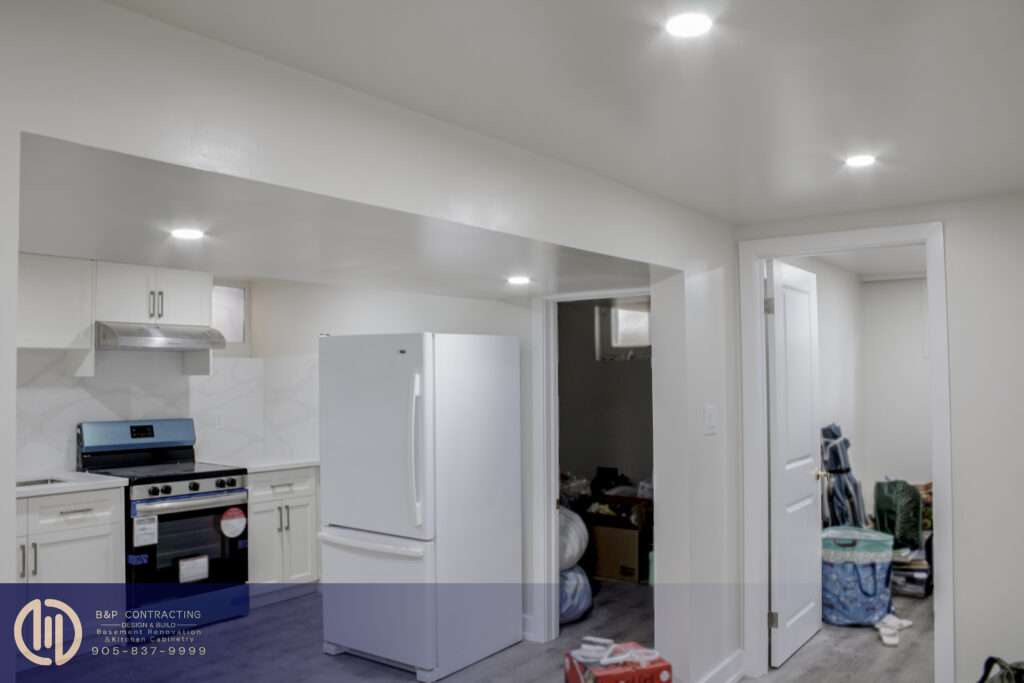How to Ensure Your Basement Suite is Legal in Ontario:

Basement suites are gaining popularity in Ontario, offering landlords rental income and tenants a more affordable living option. However, delving into this venture requires adherence to specific legalities. In Ontario, strict guidelines must be followed to avoid severe consequences. Here are 10 questions and answers to guide you through the process.
1. What Is a Legal Basement Suite?
In Ontario, a legal basement suite is a secondary dwelling unit that complies with the Ontario Building Code, local zoning bylaws, and the Ontario Fire Code. It also requires Electrical Safety Authority Certification, meeting several criteria for it to be considered “legal.
2. Legal vs. Illegal Basement Suites: What’s the Difference?
Legal suites adhere to proper permits, building codes, fire codes, electrical codes, and local zoning bylaws. They are often registered with the local municipality. Illegal suites violate these regulations and may lead to fines or legal repercussions.
3. Can I Rent Out an Illegal Basement Suite?
While some landlords do rent out illegal suites, it is not advisable. Landlords are responsible for compliance with local bylaws, and operating an illegal suite may result in hefty fines, lawsuits, or other legal consequences.
4. What Are the Fines for Operating an Illegal Suite in Ontario?
Operating an illegal suite in Ontario can lead to fines of up to $25,000 for individuals and $50,000 for corporations. Corrective measures may be required before continuing to rent the unit.
5. What Are the Requirements for a Legal Basement Suite?
Legal basement suites in Ontario must meet various criteria, including being part of a principal residence at least five years old, having a self-contained design with separate entrance, kitchen, and bathroom, complying with local by-laws, and meeting all safety codes.
6. How Do I Register My Secondary Suite?
To register a secondary suite, apply for and receive a building permit from the local building department. Approval involves submitting required documents, including construction drawings. Compliance with fire, building, and electrical codes is confirmed through inspections.
7. What Makes a Legal Basement Bedroom in Ontario?
A legal basement bedroom in Ontario must adhere to general codes and specific guidelines, including ceiling height, window size, and ventilation requirements.
8. Is it Illegal to Have a Full Kitchen in the Basement?
Having a full kitchen in the basement is legal, provided you obtain necessary permits and adhere to building and fire codes. However, its use for personal purposes may trigger secondary suite requirements.
9. Is it Illegal to Finish a Basement Without a Permit?
Finishing a basement without a permit is illegal. Consequences may include fines or dismantling completed work to assess compliance with codes.
10. How Do I Know if I Am Zoned For a Basement Suite?
In Ontario, you can build a second unit, including a basement suite, in any area of your house. However, compliance with various codes and bylaws is essential. Check local zoning bylaws before starting to ensure proper compliance.
Navigating the complexities of legal basement suites is challenging, but working with a certified contractor, especially one from Bnp Contracting, can simplify the process and ensure compliance with all regulations. Find a professional through our approved network to start your project with confidence!
Read related Article: Multi-generational Home Renovation Tax Credit for Basement Renovations
